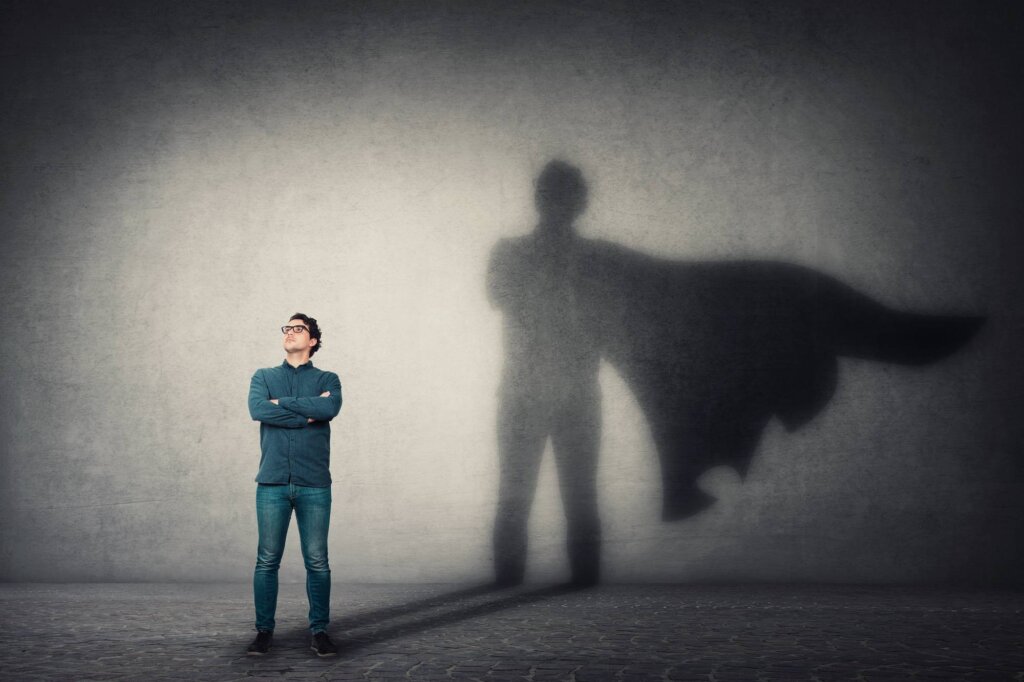Does Power Change People?


Written and verified by the psychologist Valeria Sabater
It’s often said that power changes people. In fact, they say that being in a position of power goes to people’s heads and hardens their hearts. It’s true that some biases in terms of social influence and power creep in. Indeed, this is a phenomenon that’s frequently observed.
When an individual takes on a new and powerful position, they must develop new strategies and behaviors. They have to make changes to sustain their new position and develop a leadership style capable of achieving specific objectives. However, the problem is that sometimes, this change brings with it aggressive behaviors and attitudes or a lack of empathy.
But, what causes such changes in behavior? And, does it occur in all cases or are there exceptions? We’re going to explore.
“I am grateful that I am not one of the wheels of power, but one of the creatures that are crushed by them.”
-Rabindranath Tagore-
Is it true that power changes people?
It’s a fact that power can change people, so much so that even its slightest influence in a social environment can generate alterations in behavior. For example, when a colleague is promoted, there are certain elements of their behavior that are transformed from one day to the next as a result of their new position.
An article published in the Journal of Management claims that leadership and power change, whoever exercises it, in every organizational context. But, the consequences of these variations such as interaction with the environment or in the way an individual makes decisions are still not fully understood.
However, although holding a position of power transforms the individual’s behavior, this doesn’t always have to be negative or threatening. As Daniel Goleman points out in his book, Leadership That Gets Results, there are up to six types of leadership. All of them, with the exception of the coercive or authoritarian leader, are positive. They’re as follows:
- Authoritarian.
- Coercive.
- Affiliative.
- Pacesetting.
- Democratic.
- Coaching.
Evidently, power changes people, but that change can be oriented in an enriching way for the entire environment and can help in the achievement of common goals.

How power changes people
What is it that changes in the human being when they hold power? Is it their values, purposes, needs, or emotions that alter? In fact, there are many aspects of the individual that change when they adopt a position of power.
These changes are motivated by their need to maintain their position, mediate their social influence, and achieve certain objectives. So, let’s find out how power changes people.
They stop attending to emotional factors
There’s one recurring idea about powerful people. It’s related to the fact that they lack empathy. This isn’t a claim that can be demonstrated, but there’s evidence of an associated dimension. For example, the University of Liaoning (China) conducted a study that claims those in power stop responding to the emotional stimuli of others.
In other words, a powerful leader can specify and understand the emotions of others, but won’t act on them. They overlook them. This allows them to make drastic decisions, even when they negatively affect others.
Greater impulsiveness
Ideally, every leader should demonstrate a good capacity for reflection, analysis, critical thinking, and cognitive patience. This is the only way of making the best decisions. But, powerful people sometimes end up demonstrating more impulsive behaviors. This causes them to make false moves or those that end up being costly for them.
More self-interested or selfish perspectives
Power encapsulates individuals in more instrumental and egotistical perspectives. As a result of this, various changes occur. The most common is an advance toward self-interested behavior. This frequently leads to harmful or detrimental actions for many groups.
A common characteristic of those in power is to stop reacting to the needs, emotions, and behaviors of others.
Reformulation of values
This is a common phenomenon. Some people, before they reach a position of power in an organization will defend specific values. For instance, friendship, respect, solidarity, gratitude, and forgiveness. But, upon reaching power, many of their ethical principles and even their own values change. Instead, they open up to dimensions such as independence, competitiveness, and success.
Hubris syndrome
In some cases, power changes people in extremely negative ways. This behavioral and emotional alteration could culminate in Hubris syndrome. It’s a personality pattern defined by the following characteristics:
- Violent communication.
- Excessive self-confidence.
- Loss of harmony with their work team and other individuals.
- Ceasing to see reality as it is. In fact, they live in a parallel world where only their personal needs and goals count.

Why do people in power change?
Neuroscience suggests an explanation for why power changes people. A study published in the Journal of Experimental Psychology claims that if social influence goes to our heads, it’s due to variations that appear in our brains.
Those responsible for this study carried out a series of MRIs on people in power and also on those not in power. They discovered a striking fact: those who have a high position have less motor resonance. This neurological mechanism is activated by interacting with others.
Apparently, those who reach prominent levels of society stop reacting to the needs, emotions, and behaviors of others. This could be a recurring characteristic. It might be explained by the instrumental vision of achieving goals at all costs, going beyond the emotional realities of the environment.
Does power change all people equally?
Could it happen to you? Could your best friend, who you admire so much, change if they were in a position of power? The answer isn’t simple but can be clarified. Power changes people, but those changes don’t always shape negative or unethical behavior.
People with firm human values, noble principles, solid empathy, and emotional intelligence become good leaders. Social influence makes them change certain aspects and they become goal-oriented figures, but their essence remains the same.
However, there are exceptions. In society, there are certain individuals with narcissistic traits who, due to their personality, seem perfect for positions of power. But, it’s a trap, and giving them power isn’t appropriate.
These are people that grow in positions of power. In many cases, this leads to behaviors that are highly harmful to the emotional and personal climate of any organization.
Narcissists exhibit certain traits that make it easier for them to access positions of power. Once they access these ranks, they develop their innate characteristics to the maximum, such as manipulation.
How to prevent power from changing you
Life takes many turns. It may happen that, at some point, you reach a position of great power and influence. What can you do so that power doesn’t wreak havoc in your life? Take note of the following:
- Remember your origins. Make frequent contact with your own roots.
- If power is corrupting you, look in the mirror every day and ask yourself what good deed you did today. Figure out if you’re the person you want to be.
- The main defect of the powerful person is their lack of emotional connection with others. Try to train yourself in emotional intelligence, so you don’t lose or wear out this value.
- If you don’t want power to turn you into someone different, it’s helpful to have someone you trust close by. It’s useful to have people around you who know you and who demonstrate good values, ethics, and assertiveness to guide you.
Lastly, you probably remember Christian Bale in his role as Patrick Bateman in American Psycho. He portrayed the worst possible effects of power. It’s up to you to create the kinds of mechanisms that can help you develop the type of personality with which you could lead anything, from a small company to a large country.
It’s often said that power changes people. In fact, they say that being in a position of power goes to people’s heads and hardens their hearts. It’s true that some biases in terms of social influence and power creep in. Indeed, this is a phenomenon that’s frequently observed.
When an individual takes on a new and powerful position, they must develop new strategies and behaviors. They have to make changes to sustain their new position and develop a leadership style capable of achieving specific objectives. However, the problem is that sometimes, this change brings with it aggressive behaviors and attitudes or a lack of empathy.
But, what causes such changes in behavior? And, does it occur in all cases or are there exceptions? We’re going to explore.
“I am grateful that I am not one of the wheels of power, but one of the creatures that are crushed by them.”
-Rabindranath Tagore-
Is it true that power changes people?
It’s a fact that power can change people, so much so that even its slightest influence in a social environment can generate alterations in behavior. For example, when a colleague is promoted, there are certain elements of their behavior that are transformed from one day to the next as a result of their new position.
An article published in the Journal of Management claims that leadership and power change, whoever exercises it, in every organizational context. But, the consequences of these variations such as interaction with the environment or in the way an individual makes decisions are still not fully understood.
However, although holding a position of power transforms the individual’s behavior, this doesn’t always have to be negative or threatening. As Daniel Goleman points out in his book, Leadership That Gets Results, there are up to six types of leadership. All of them, with the exception of the coercive or authoritarian leader, are positive. They’re as follows:
- Authoritarian.
- Coercive.
- Affiliative.
- Pacesetting.
- Democratic.
- Coaching.
Evidently, power changes people, but that change can be oriented in an enriching way for the entire environment and can help in the achievement of common goals.

How power changes people
What is it that changes in the human being when they hold power? Is it their values, purposes, needs, or emotions that alter? In fact, there are many aspects of the individual that change when they adopt a position of power.
These changes are motivated by their need to maintain their position, mediate their social influence, and achieve certain objectives. So, let’s find out how power changes people.
They stop attending to emotional factors
There’s one recurring idea about powerful people. It’s related to the fact that they lack empathy. This isn’t a claim that can be demonstrated, but there’s evidence of an associated dimension. For example, the University of Liaoning (China) conducted a study that claims those in power stop responding to the emotional stimuli of others.
In other words, a powerful leader can specify and understand the emotions of others, but won’t act on them. They overlook them. This allows them to make drastic decisions, even when they negatively affect others.
Greater impulsiveness
Ideally, every leader should demonstrate a good capacity for reflection, analysis, critical thinking, and cognitive patience. This is the only way of making the best decisions. But, powerful people sometimes end up demonstrating more impulsive behaviors. This causes them to make false moves or those that end up being costly for them.
More self-interested or selfish perspectives
Power encapsulates individuals in more instrumental and egotistical perspectives. As a result of this, various changes occur. The most common is an advance toward self-interested behavior. This frequently leads to harmful or detrimental actions for many groups.
A common characteristic of those in power is to stop reacting to the needs, emotions, and behaviors of others.
Reformulation of values
This is a common phenomenon. Some people, before they reach a position of power in an organization will defend specific values. For instance, friendship, respect, solidarity, gratitude, and forgiveness. But, upon reaching power, many of their ethical principles and even their own values change. Instead, they open up to dimensions such as independence, competitiveness, and success.
Hubris syndrome
In some cases, power changes people in extremely negative ways. This behavioral and emotional alteration could culminate in Hubris syndrome. It’s a personality pattern defined by the following characteristics:
- Violent communication.
- Excessive self-confidence.
- Loss of harmony with their work team and other individuals.
- Ceasing to see reality as it is. In fact, they live in a parallel world where only their personal needs and goals count.

Why do people in power change?
Neuroscience suggests an explanation for why power changes people. A study published in the Journal of Experimental Psychology claims that if social influence goes to our heads, it’s due to variations that appear in our brains.
Those responsible for this study carried out a series of MRIs on people in power and also on those not in power. They discovered a striking fact: those who have a high position have less motor resonance. This neurological mechanism is activated by interacting with others.
Apparently, those who reach prominent levels of society stop reacting to the needs, emotions, and behaviors of others. This could be a recurring characteristic. It might be explained by the instrumental vision of achieving goals at all costs, going beyond the emotional realities of the environment.
Does power change all people equally?
Could it happen to you? Could your best friend, who you admire so much, change if they were in a position of power? The answer isn’t simple but can be clarified. Power changes people, but those changes don’t always shape negative or unethical behavior.
People with firm human values, noble principles, solid empathy, and emotional intelligence become good leaders. Social influence makes them change certain aspects and they become goal-oriented figures, but their essence remains the same.
However, there are exceptions. In society, there are certain individuals with narcissistic traits who, due to their personality, seem perfect for positions of power. But, it’s a trap, and giving them power isn’t appropriate.
These are people that grow in positions of power. In many cases, this leads to behaviors that are highly harmful to the emotional and personal climate of any organization.
Narcissists exhibit certain traits that make it easier for them to access positions of power. Once they access these ranks, they develop their innate characteristics to the maximum, such as manipulation.
How to prevent power from changing you
Life takes many turns. It may happen that, at some point, you reach a position of great power and influence. What can you do so that power doesn’t wreak havoc in your life? Take note of the following:
- Remember your origins. Make frequent contact with your own roots.
- If power is corrupting you, look in the mirror every day and ask yourself what good deed you did today. Figure out if you’re the person you want to be.
- The main defect of the powerful person is their lack of emotional connection with others. Try to train yourself in emotional intelligence, so you don’t lose or wear out this value.
- If you don’t want power to turn you into someone different, it’s helpful to have someone you trust close by. It’s useful to have people around you who know you and who demonstrate good values, ethics, and assertiveness to guide you.
Lastly, you probably remember Christian Bale in his role as Patrick Bateman in American Psycho. He portrayed the worst possible effects of power. It’s up to you to create the kinds of mechanisms that can help you develop the type of personality with which you could lead anything, from a small company to a large country.
All cited sources were thoroughly reviewed by our team to ensure their quality, reliability, currency, and validity. The bibliography of this article was considered reliable and of academic or scientific accuracy.
- Avelino, F. (2021). Theories of power and social change. Power contestations and their implications for research on social change and innovation. Journal of political power, 14(3), 425-448. https://www.tandfonline.com/doi/full/10.1080/2158379X.2021.1875307
- Goleman, D. (2017). Leadership that gets results (Harvard Business Review Classics). Harvard Business Press. https://books.google.es/books?id=CG9GDgAAQBAJ
- Hogeveen, J., Inzlicht, M., & Obhi, S. S. (2014). Power changes how the brain responds to others. Journal of experimental psychology. General, 143(2), 755–762. https://pubmed.ncbi.nlm.nih.gov/23815455/
- Ma, X., & Zhang, E. (2021). The influence of social power on neural responses to emotional conflict. PeerJ, 9, e11267. https://www.ncbi.nlm.nih.gov/pmc/articles/PMC8048403/
- Sturm, R. E., & Antonakis, J. (2015). Interpersonal Power. Journal of Management, 41(1), 136-163. https://serval.unil.ch/resource/serval:BIB_1F6C29A616C0.P001/REF.pdf
This text is provided for informational purposes only and does not replace consultation with a professional. If in doubt, consult your specialist.







